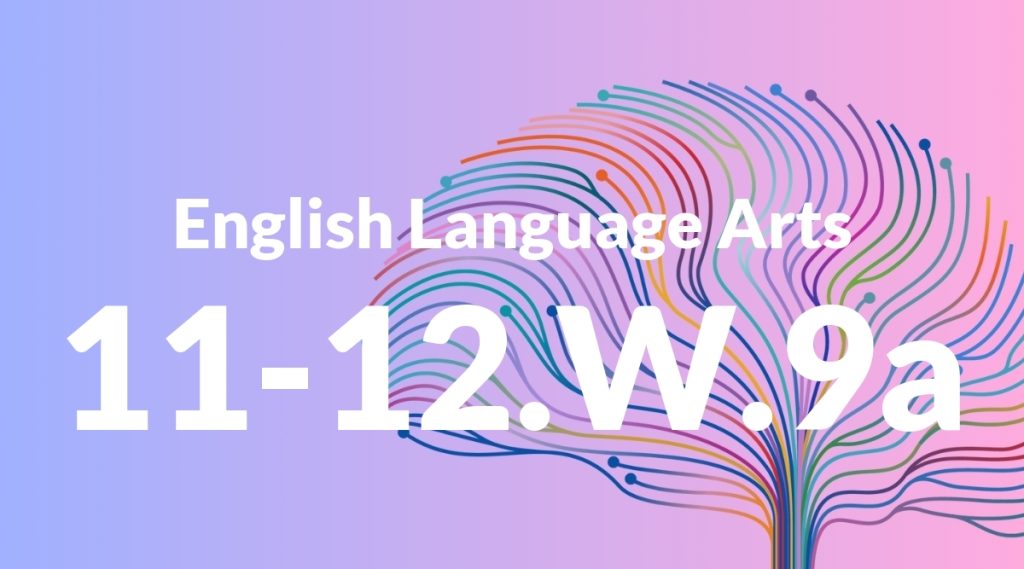Standard: 11-12.W.9 – Draw evidence from literary or informational texts to support analysis, reflection, and research.
Grade level: Grade 11-12
Subject: English Language Arts
Domain: Writing
Teacher Overview
This standard emphasizes the importance of drawing evidence from texts to support analysis, reflection, and research. It is crucial for students to learn how to back up their claims with concrete evidence, which is a foundational skill for academic writing and critical thinking. Students should be comfortable with identifying main ideas and supporting details, understand basic research techniques, and have prior experience in writing analytical essays.
Mastering this standard will enable students to conduct more sophisticated research, develop nuanced arguments, and engage in higher-level critical thinking.
Common Misconception 1
A common misconception is that any information from a text can be used as evidence. However, not all information is relevant or directly supports the claim being made.
Intervention 1
An effective intervention is to provide examples of relevant versus irrelevant evidence and to practice evaluating evidence in context.
Common Misconception 2
Another misconception is that summarizing the text is equivalent to analyzing it. Summarizing only recounts what the text says, whereas analysis involves interpreting and connecting the evidence to broader arguments.
Intervention 2
To address this, guide students through the process of moving from summary to analysis by asking probing questions that require deeper thinking and connections.
Prerequisite Knowledge
Students should be able to identify main ideas and supporting details in a text, understand basic research methods, and have experience with writing analytical essays.
Subsequent Knowledge
Students will develop the ability to conduct more sophisticated research, create more nuanced arguments, and engage in higher-level critical thinking and analysis.
Instructional Activities
- Close reading exercises with focus on identifying evidence
- Peer review sessions for evaluating use of evidence
- Writing workshops on developing arguments with textual support
- Research projects that require evidence-based analysis
- Debate activities that emphasize supporting claims with evidence




